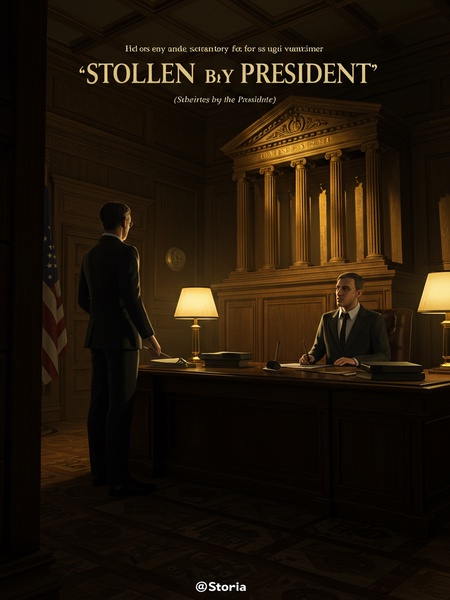Chapter 5: Appeasement and the Fire Next Time
With the abolition of the Black Hawk band, the government gained a new state-level administrative unit: Iowa. However, the federal leaders did not anticipate that this move would alarm the other tribes in Iowa.
Word traveled fast—by wire, horseback, and rumor. Suddenly, every tribal leader in the state was watching Washington, wondering if their days were numbered.
At that time, several powerful tribes remained in Iowa, such as the Sioux Nation and the Cheyenne. The abolition of the Black Hawk band and the imposition of direct administration naturally caused them anxiety and resentment. In response, subsequent presidents focused on appeasement to avoid further conflict.
Tempers simmered at the edges of town. Tribal councils met in secret, weighing the odds. Some hoped for compromise; others sharpened their knives.
For example, during the 1880s, the "Great Plains Uprising" was a constant threat. Chief White Eagle, the leader of a major tribe in Nebraska, petitioned President Arthur to increase the number of tribal officials to help control the local indigenous population.
Arthur’s desk groaned under the weight of petitions and telegrams. Every leader wanted a seat at the table, and nobody wanted to be left behind as the map of America kept changing.
President Arthur promptly agreed: "If White Eagle’s plan keeps the peace and saves us money, why not give him the job? Let’s be practical."
It was the old sheriff’s trick—let the locals police their own, as long as they kept the peace. The reply, couched in formal prose, concealed a pragmatic logic: keep the peace, cut the budget, and let local leaders handle their own. It was government by ledger and handshake.
From the president’s reply, we see that the government’s policy toward the tribes at this time was primarily one of conciliation. As he said, if these native leaders could maintain peace and reduce military expenses, granting them official titles was a small price to pay.
Washington had learned the hard way that a little autonomy could buy a lot of stability—at least until the next crisis came along.
In fact, until the mid-20th century, the prevailing approach to the tribes was not abolition, but appeasement. The most prominent advocate of this strategy was the renowned official and philosopher John Dewey.
John Dewey—part philosopher, part dealmaker—knew how to read a room and a battlefield. His lectures drew crowds from coast to coast. His words, printed in every major paper, shaped not just federal policy but the way ordinary Americans thought about their neighbors on the frontier.
John Dewey, who achieved national prominence in Chicago and personally led efforts to mediate the "Nebraska tribal uprising," had deep experience with the tribal regimes. As a leading civil official and thinker, his views greatly influenced federal minority policy.
He was the sort of man who could quote Aristotle in the morning and cut a political deal by lunch. His reputation as a bridge-builder made him a natural choice when tempers flared.
After quelling the Nebraska uprising, he stated clearly: “…Since Nebraska began sending in government men, there have been five or six rebellions in the past eighteen or nineteen years. Military expeditions have never ceased. Who knows how many troops were mobilized, how much money was spent, how many good people were killed? The government hasn’t gained a thing—just endless headaches. The blood and sweat of the people have been wasted for nothing. The futility of sending in government men is plain as day.”
His words landed like a thunderclap in Washington. You could almost hear the collective groan from tired generals and exhausted mayors alike.
Dewey’s message was clear: trying to abolish the tribal system and send in D.C. men didn’t bring peace or order. It just sparked more rebellions and wasted resources. If this was the result, better to let the old system be.
It was a hard pill for some to swallow. Old-school types grumbled about "giving in," while others quietly acknowledged the wisdom in Dewey’s reluctant pragmatism.
Dewey was a wise statesman who deeply understood the realities of minority regions. With his influence, it’s easy to imagine the attitude of other federal officials. Thus, during the mid to late 20th century, the government mainly adopted the policy of "using natives to control natives." Yet this excessive leniency only emboldened the tribal leaders, who came to believe the government feared them. At the time, some tribal chiefs even boasted: "The president might have the whole army, but I’ve got the hills on my side—and that’s worth more than a battalion."
Coffee shop conversations buzzed with rumors—stories of chiefs who couldn’t be touched, and officials who dared not cross the wrong family. The line between negotiation and capitulation grew ever thinner.
Such was the lawlessness of the tribes.
In some towns, it was said that the sheriff answered to the tribal chief, not the other way around. Folks learned to mind their own business and keep their heads down.
Continue the story in our mobile app.
Seamless progress sync · Free reading · Offline chapters